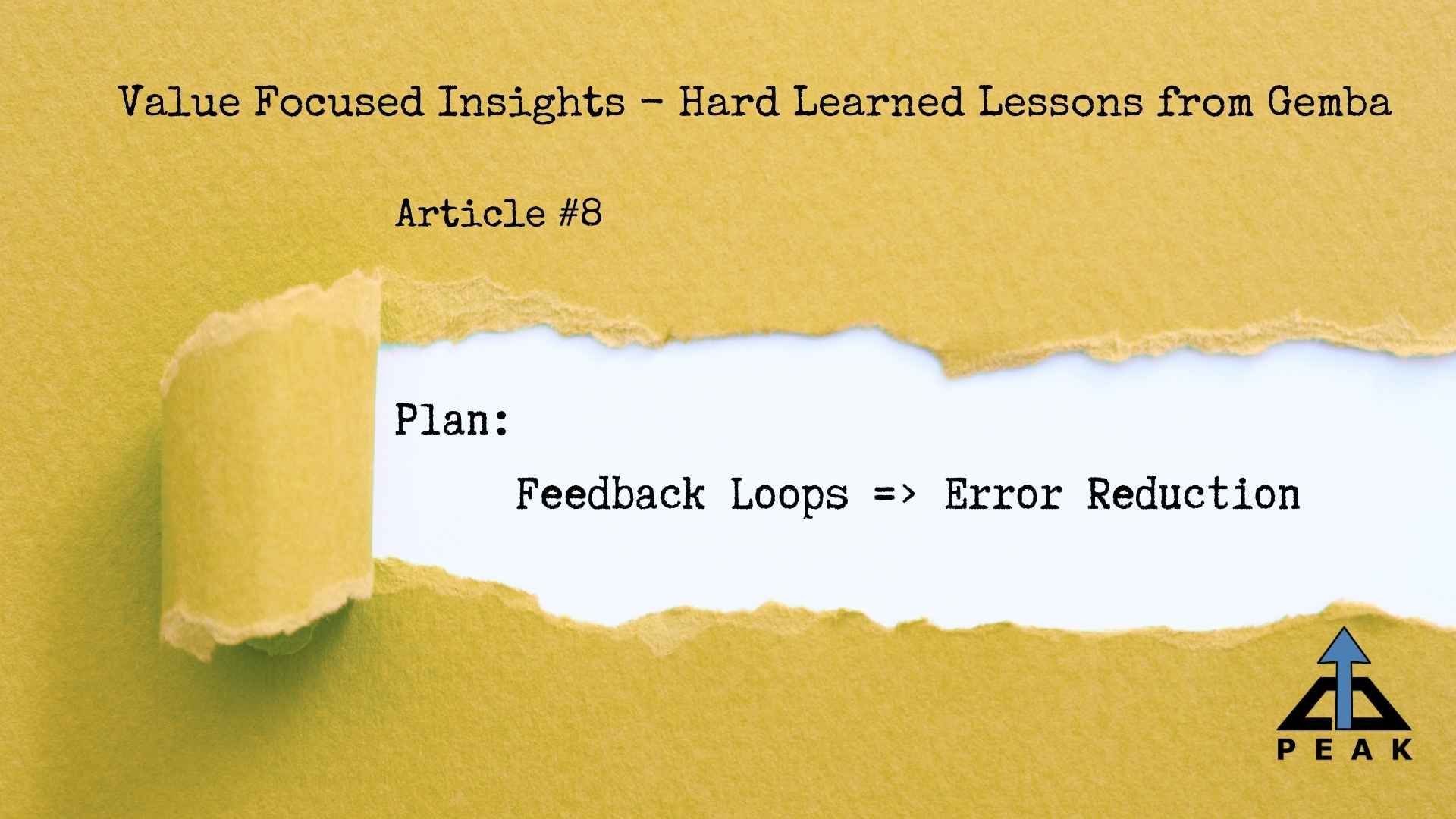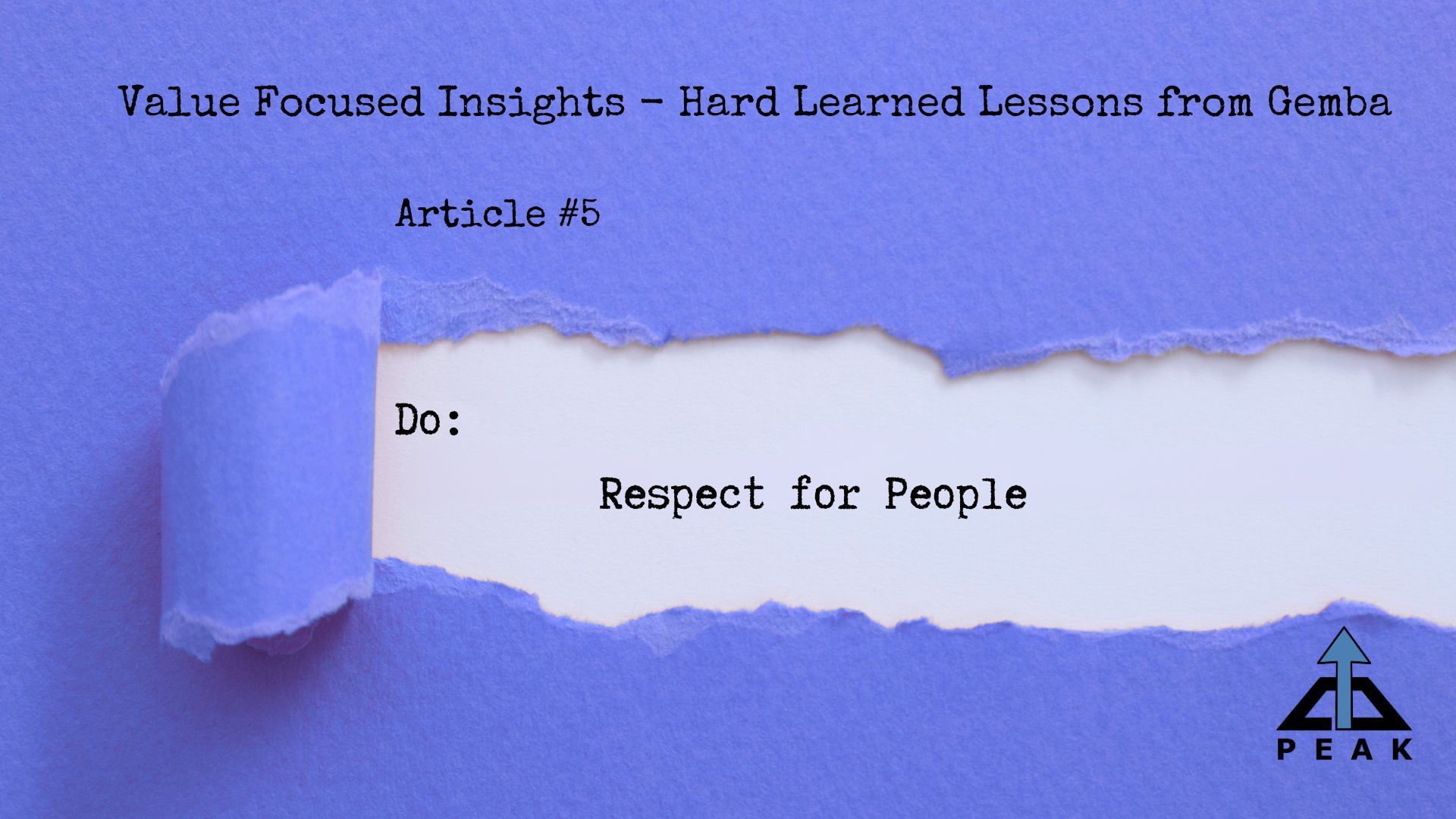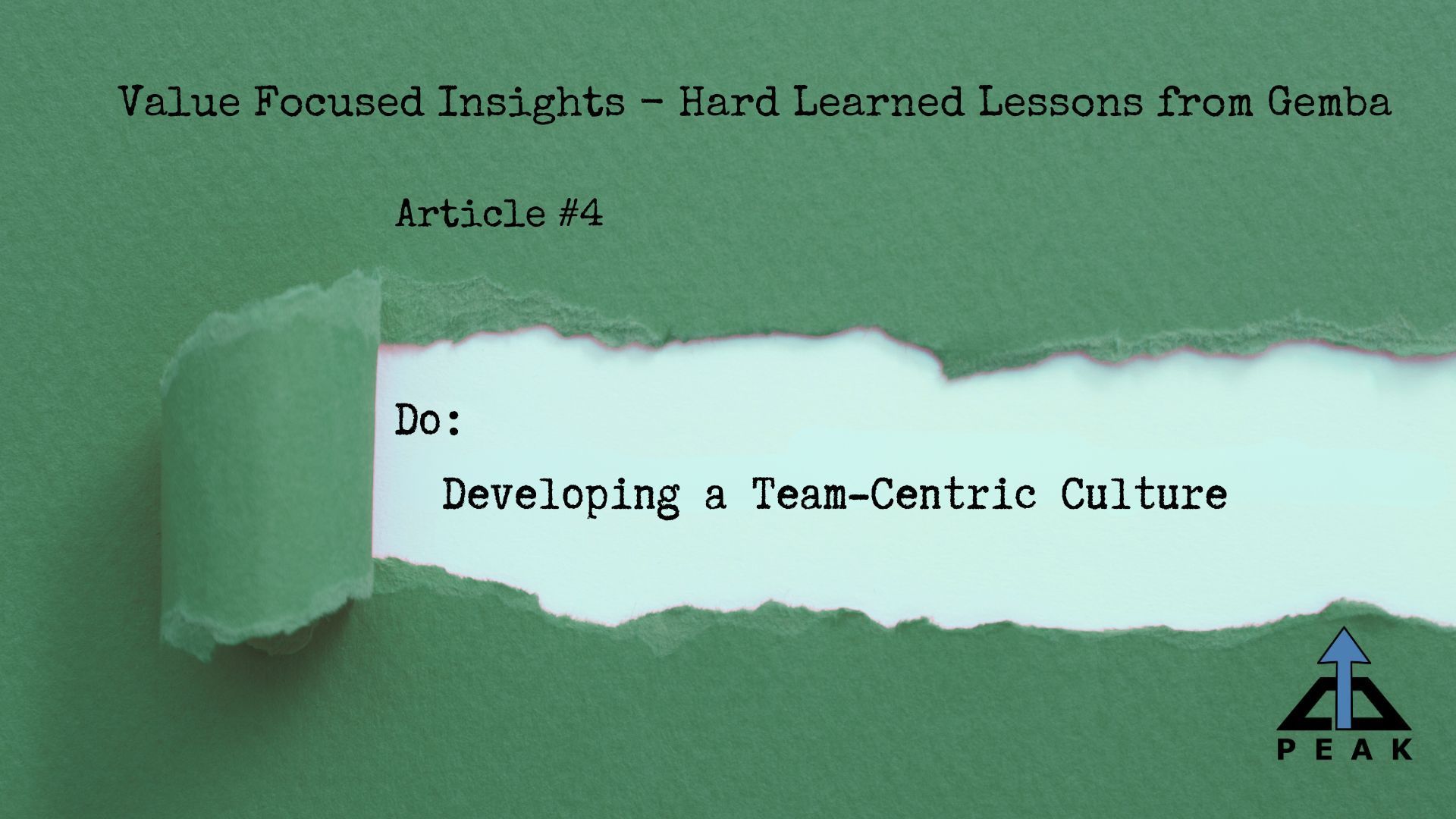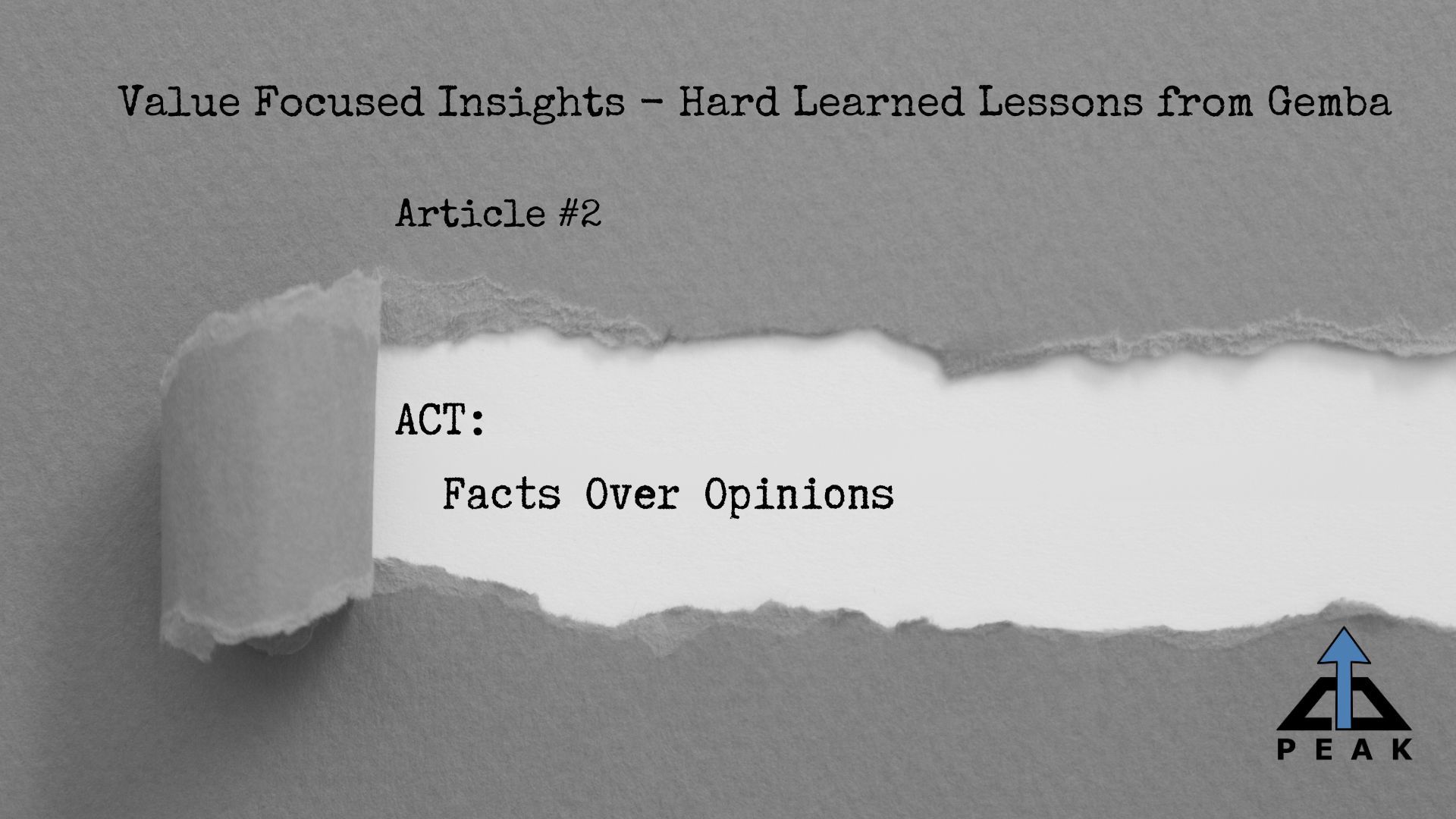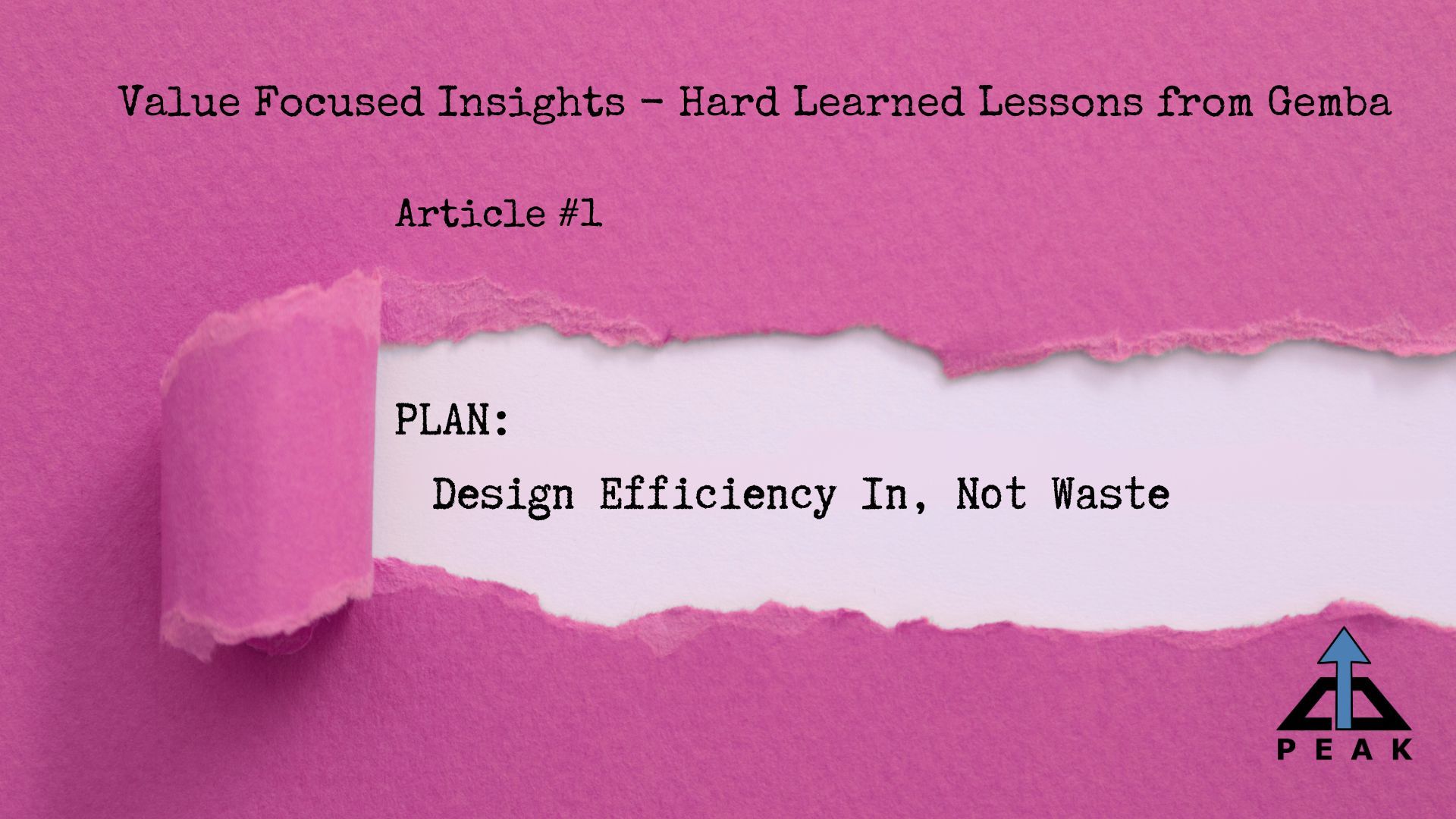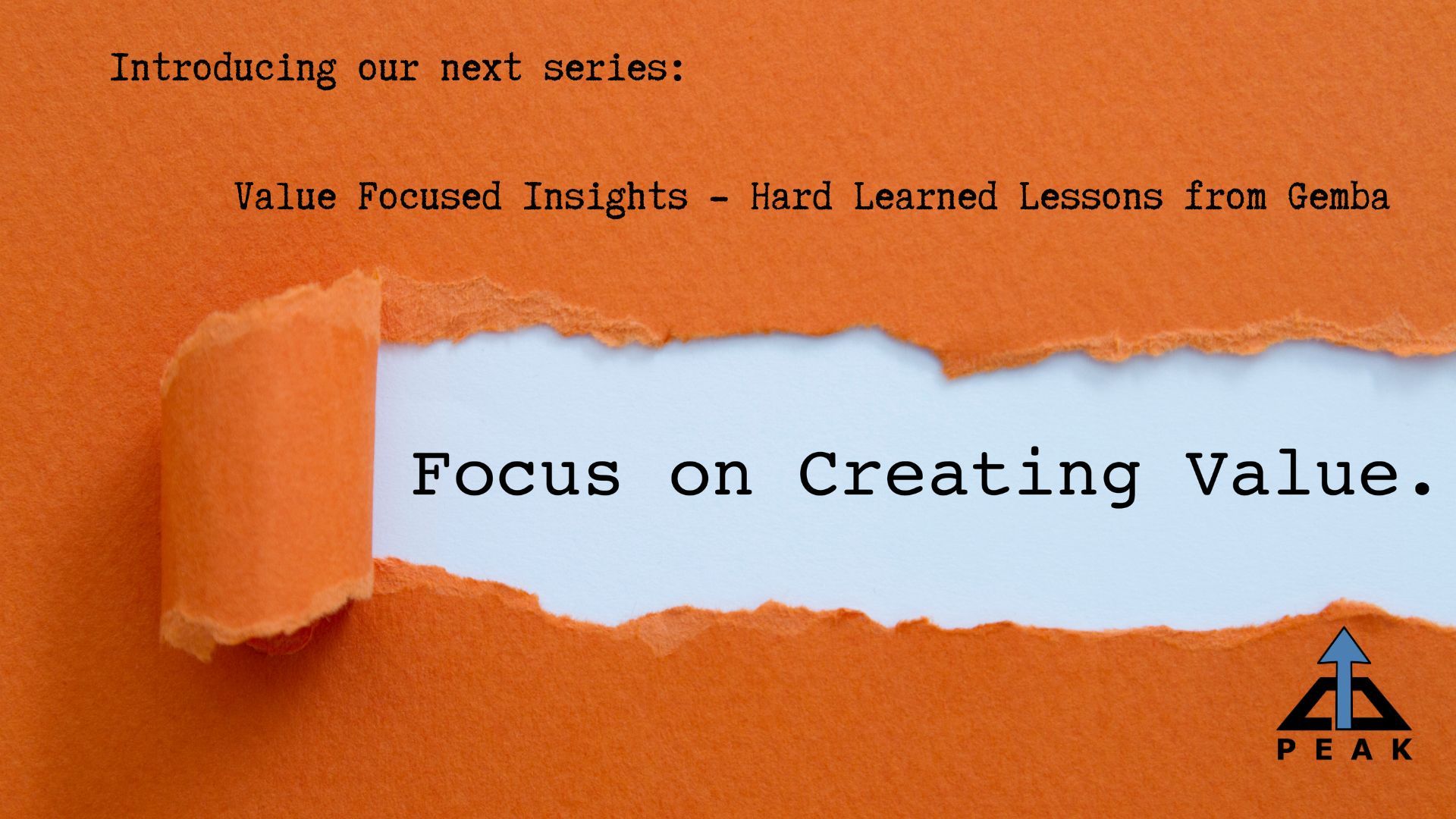Value Focused Insights - If I Could Ask the Right Question...
Tim Upchurch
Imagine this scenario: your workplace receives a substantial order, demanding a 35% increase in production for a continuous six-month period, commencing at the end of the next quarter. The knee-jerk reaction for many organizations is to dive headfirst into hiring, adding shifts, and equipment. However, is this the most strategic move, or merely a countermeasure that might lead to a slew of unforeseen challenges?

If I Can Ask the Right Question…
Introduction: Imagine this scenario: your workplace receives a substantial order, demanding a 35% increase in production for a
continuous six-month period, commencing at the end of the next quarter. The knee-jerk reaction for many organizations is to dive headfirst into hiring, adding shifts, and equipment. However, is this the most strategic move, or merely a countermeasure that might lead to a slew of unforeseen challenges?
Avoid The Rush to Action: Urgency is good, panic is not. Breathe. Take a moment to understand the problem. When confronted with a surge in demand, the instinctive response is to jump into action—hire more people, order more equipment, add shifts, and whatever else can increase production capacity. It's like launching into battle without a comprehensive strategy. In the haste to address the immediate need, organizations often overlook a crucial step—understanding where cheap and easy opportunities exist in their current processes.
Countermeasure vs. Solution: Adding a shift or hiring more personnel is really more of a countermeasure, not a great solution. It's akin to treating the symptoms without diagnosing the underlying ailment. A reactive hiring frenzy will only bring its own set of challenges that will need to be addressed eventually. Ramping up with new employees quickly introduces risks of bad quality, safety concerns, how to properly train them while maintaining existing production needs, and the list goes on. What are you going to do with them once you've fulfilled that order? I get it, your boss wants an action plan tomorrow morning…. However, it's frankly bad leadership/management to just kick the can down the road if better alternatives exist that you can take today.
System Thinking: Your production process is a system, and like any system, it really requires a holistic perspective. Its design creates behaviors to support it and actions have consequences, both intended and unintended. Systems thinking mandates not only examining the probabilities of success/failure but also evaluating the potential unintended consequences of actions. Before making a move, it's crucial to consider how each action might reverberate through the entire system. Think of how a potential hiring strategy would impact your metrics. On the plus side, you will generate some incremental output. However, your costs, quality, safety and morale will suffer as a result. Perhaps worse, your entire organization will be consumed with implementing (and the consequences of) this countermeasure and not working on continuous improvements. There are often better options available if you are willing to look.
Leverage Points: In systems thinking, the focus should not be on the local view. It involves identifying global issues such as bottlenecks in your flow, design flaws, conflicting rules, or faulty paradigms and attacking them. If you don't have a good Value Stream Map already, consider developing one today or at least a solid A3 for your specific problem at hand. I suggest thinking of the exercise as generating an inventory of your waste. This will help to identify the real constraints within your system. These are the leverage points that, when addressed, can often lead to substantial improvements in overall performance. It's about finding the sweet spots in the system, the areas where a targeted intervention can create a ripple effect of positive change throughout your entire organization. The idea has been around for quite some time. I'm sure most of you are familiar with this famous quote by Archimedes:
"Give me a lever long enough and a fulcrum on which to place it, and I shall move the world."
That's what we're looking for - the right solution applied at just the right spot for maximum impact to the entire value stream.
Asking the Right Question: Let's say you already have a VSM. It reveals that 50% of your total installed capacity is lost during changeovers. Perhaps you can focus efforts on reducing some of this downtime and unlock substantial latent capacity without hiring. This might involve something as simple as tweaking run rules, streamlining processes, or adopting other innovative solutions. There might be some combination of actions that cost next to nothing compared to the time or cost required for new hires but produces the same results. In this case you've impacted output without negatively burdening quality, safety or cost at the same time. Often asking the right question allows you to come to a better solution - one that doesn't detract from achieving your other goals. At worst, you could reduce some portion of additional headcount needed.
Conclusion: The next time a large order lands on your doorstep or you need some quick improvement, resist the temptation to jump into immediate action. Instead, take a moment and determine if a better solution exists. Uncover the constraints and strategically use them as leverage points within your existing processes to address operational waste in a manner that doesn't play one metric against the others. As my old boss used to say, "If I could ask the right question, I could solve for all the metrics simultaneously". This approach not only avoids the pitfalls of hasty expansions but sets the stage for sustainable growth and continuous improvement. Need help with a similar issue? Please reach out to us.
Peaks and Valleys.....


